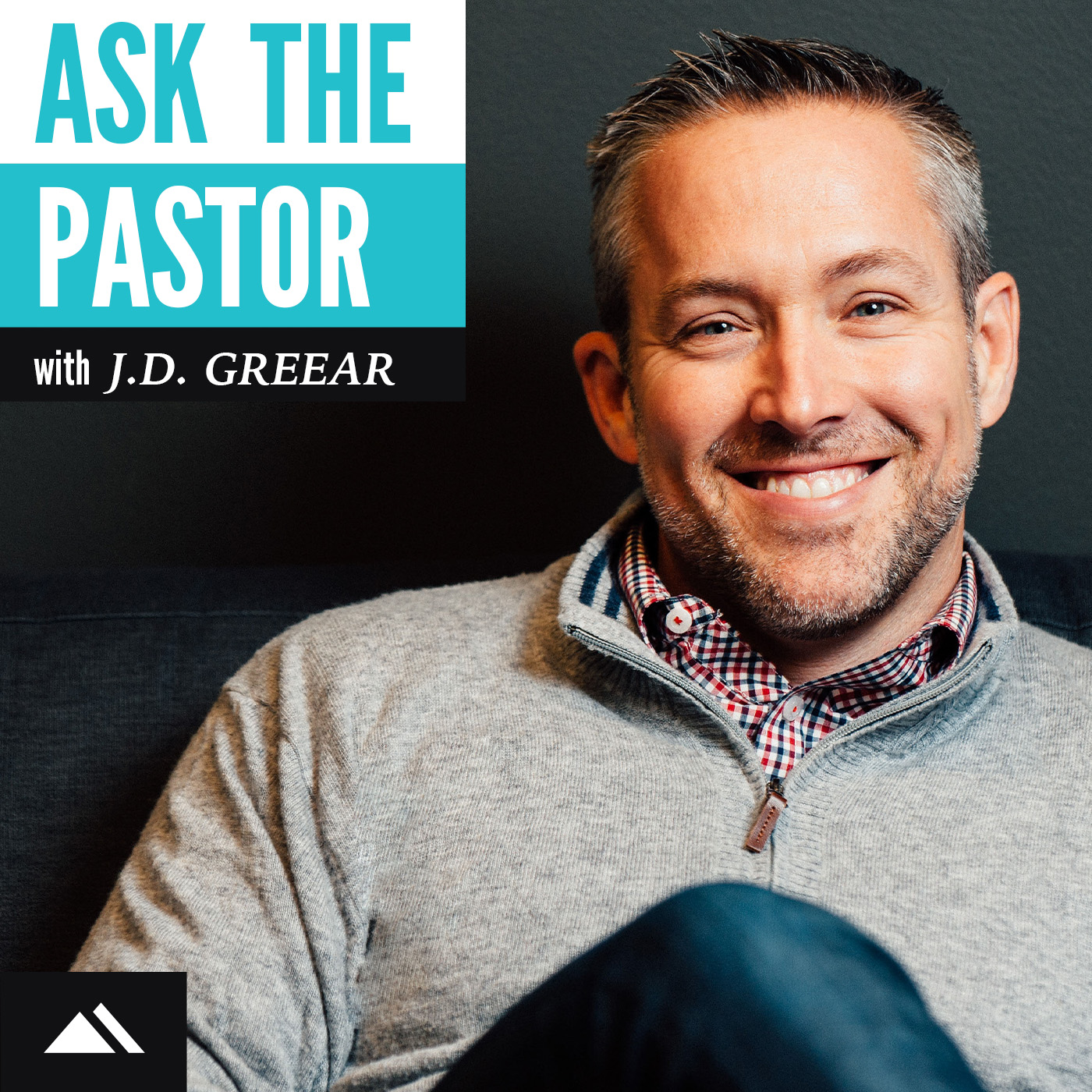

Ask the Pastor with J.D. Greear
J.D. Greear
Ask the Pastor with J.D. Greear is a weekly podcast that answers tough questions and tackles relevant issues in a way that is filled with grace, understanding, and wisdom from God’s Word. Hosted by Matt Love.
Episodes
Mentioned books

Nov 14, 2022 • 9min
What Counsel Would You Give Young Christians About Dating? Part 2
This week, as we continue our marriage & family series, Pastor J.D. shares the second half of his answer to the question: "What Counsel Would You Give Young Christians About Dating?"

Nov 7, 2022 • 12min
What Counsel Would You Give Young Christians About Dating? Part 1
This week, as we continue our marriage & family series, Pastor J.D. shares the first half of his answer to the question: "What Counsel Would You Give Young Christians About Dating?"

Oct 31, 2022 • 9min
What Are the Biggest Obstacles Christians Face in Marriage? Part 2
This week, we continue our marriage & family series with part two of last week's episode: "What Are the Biggest Obstacles Christians Face in Marriage?"

Oct 24, 2022 • 13min
What Are the Biggest Obstacles Christians Face in Marriage?
This week, we kick off a brand new series on marriage, family, and relationships. First up, we'll look at the first part of Pastor J.D.'s answer to the question: "What Are the Biggest Obstacles Christians Face in Marriage?"

Oct 17, 2022 • 10min
How Do I Deal With Criticism?
At some point, we all deal with criticism of some kind. In this episode of Ask Me Anything, Pastor J.D. talks about how to deal with criticism when it comes your way.

Oct 10, 2022 • 15min
What Do I Do If There’s a Sin I Can’t Shake?
In this episode, Pastor J.D. answers the question, "What do I do if there's a sin I can't shake?" and gives some practical ways to fight sin.

Oct 3, 2022 • 12min
What If God Is Using Your Pain to Bring You Closer to Him?
In this week's episode, Pastor J.D. continues through our series on Psalm 23. This week, he answers, "What if God is using your pain to bring you closer to him?"

Sep 26, 2022 • 25min
What Does Waiting on God Actually Look Like?
This week, we continue our series taken from a recent sermon series Pastor J.D. did at The Summit Church on Psalm 23. This week, Pastor J.D. answers: "What does waiting on God actually look like?"

Sep 19, 2022 • 14min
What Does Faith Look Like in a Season of Suffering?
This week, we dive into a short series taken from a recent sermon series Pastor J.D. did at The Summit Church on Psalm 23. First, Pastor J.D. answers: "What does faith look like in a season of suffering?"

Sep 12, 2022 • 11min
Should Christians Listen to Secular Music?
This week, Pastor J.D. talks about whether or not Christians should listen to secular music.


